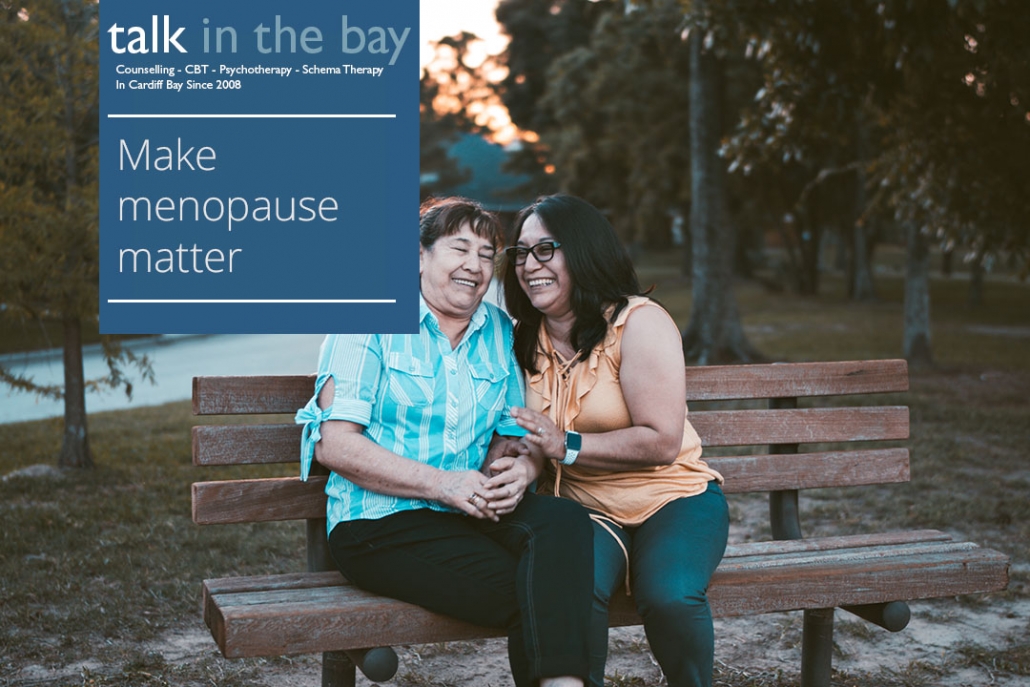Since lockdown began, there has been a lot of media coverage about possible adverse effects these unusual times can have on mental health and wellbeing. Here at Talk in the Bay, we thought this was a good time to highlight a group of people that are often overlooked – menopausal women. It is fair to say that every woman is different and every woman’s experience of the menopause varies – some women don’t even notice it as they glide gracefully through it. However, for others, it can be a deeply distressing and unsettling time. Aside from the physical effects – night sweats and hot flushes, joint pain, hair loss, vaginal dryness, osteoporosis, to name just a few, there are the psychological symptoms that can hugely affect women’s mental health and wellbeing. Depression, anxiety, panic attacks, brain ‘fog’. Despite there being over 34 known symptoms of menopause, many women don’t associate poor mental and physical health symptoms with menopause.
The recognition of menopausal symptoms is so important, as when you become aware that your emotional and physiological symptoms are menopause-related, you can seek help. There are many ways to relieve menopausal symptoms. Some are very sensible and pragmatic – exercise can be excellent both for physical and emotional wellbeing during menopause, as is a good, healthy diet. Hormone Replacement Therapy (HRT) is increasingly becoming an accepted and effective way to alleviate symptoms, and many thousands of women in the UK have found relief from the symptoms they so desperately need by going on HRT. But it is not for everyone.
Alternatively, many women find that therapeutic tools like mindfulness and CBT help their symptoms.
Mindfulness teaches us to live in the moment and be present. Being present helps to take us away from anxious or negative thoughts which are often magnified during menopause. However, mindfulness takes practice, as well as guidance and encouragement. Apps such as Calm or Headspace teach mindfulness and both have free versions to download. CBT looks at the relationship between our thoughts, emotions and behaviour and teaches us strategies to reduce negative automatic thoughts. Our therapists at Talk in the Bay can teach you CBT strategies to help reduce the negative automatic thoughts which may cause anxiety and low mood during menopause.
The main message is don’t suffer in silence. It’s nothing to be ashamed of and you are not alone. Talk to your friends, your family, your workmates. You can help to continue the dialogue and make menopause more manageable. Talk to your GP or visit a well-woman clinic if there is one near you. Go online and visit some of the excellent websites that offer vital information and support for your menopause..



